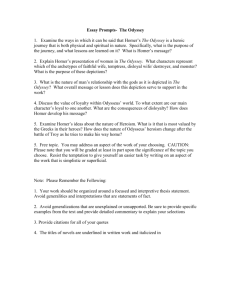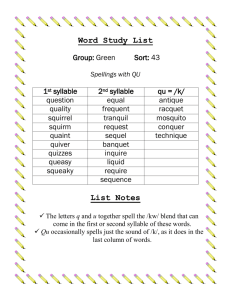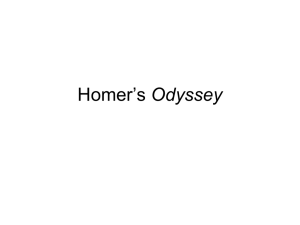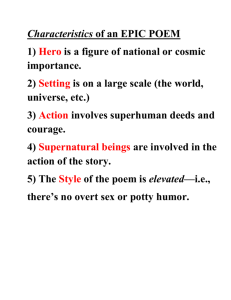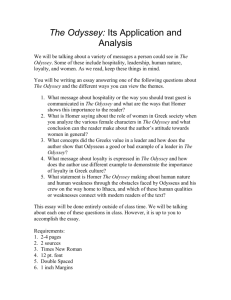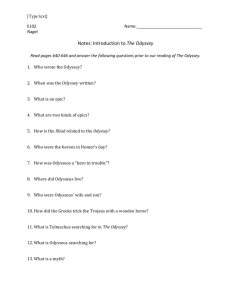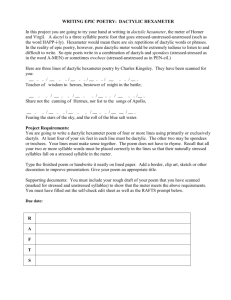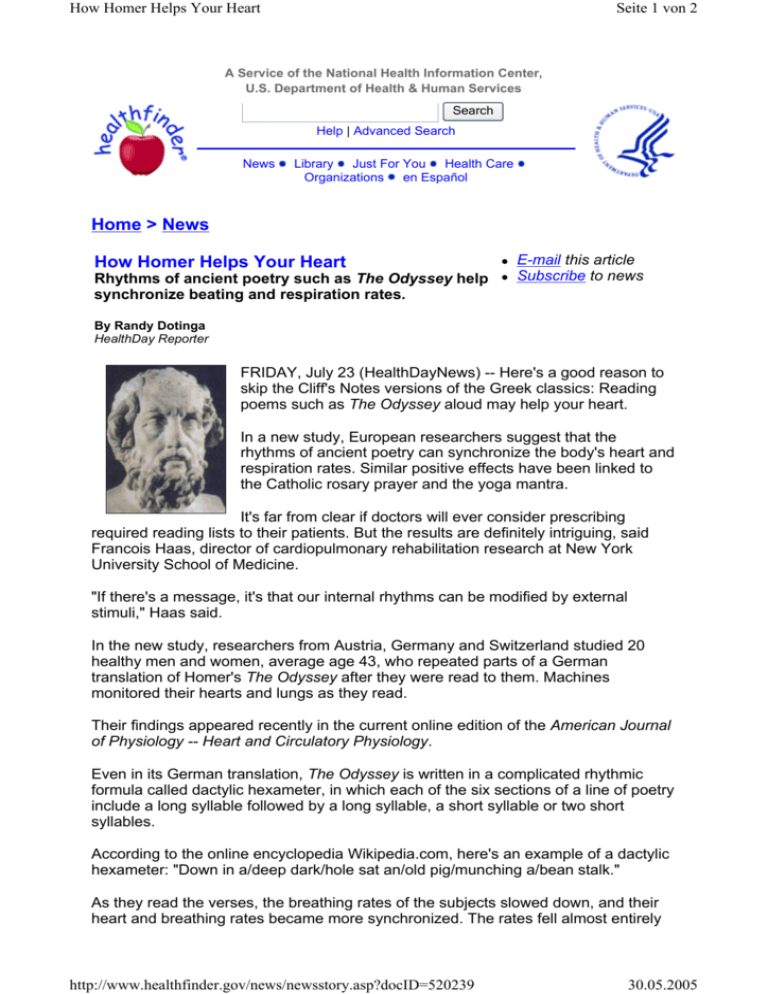
How Homer Helps Your Heart
Seite 1 von 2
A Service of the National Health Information Center,
U.S. Department of Health & Human Services
Search
Help | Advanced Search
News
Library Just For You Health Care
Organizations en Español
Home > News
How Homer Helps Your Heart
z
Rhythms of ancient poetry such as The Odyssey help
synchronize beating and respiration rates.
z
E-mail this article
Subscribe to news
By Randy Dotinga
HealthDay Reporter
FRIDAY, July 23 (HealthDayNews) -- Here's a good reason to
skip the Cliff's Notes versions of the Greek classics: Reading
poems such as The Odyssey aloud may help your heart.
In a new study, European researchers suggest that the
rhythms of ancient poetry can synchronize the body's heart and
respiration rates. Similar positive effects have been linked to
the Catholic rosary prayer and the yoga mantra.
It's far from clear if doctors will ever consider prescribing
required reading lists to their patients. But the results are definitely intriguing, said
Francois Haas, director of cardiopulmonary rehabilitation research at New York
University School of Medicine.
"If there's a message, it's that our internal rhythms can be modified by external
stimuli," Haas said.
In the new study, researchers from Austria, Germany and Switzerland studied 20
healthy men and women, average age 43, who repeated parts of a German
translation of Homer's The Odyssey after they were read to them. Machines
monitored their hearts and lungs as they read.
Their findings appeared recently in the current online edition of the American Journal
of Physiology -- Heart and Circulatory Physiology.
Even in its German translation, The Odyssey is written in a complicated rhythmic
formula called dactylic hexameter, in which each of the six sections of a line of poetry
include a long syllable followed by a long syllable, a short syllable or two short
syllables.
According to the online encyclopedia Wikipedia.com, here's an example of a dactylic
hexameter: "Down in a/deep dark/hole sat an/old pig/munching a/bean stalk."
As they read the verses, the breathing rates of the subjects slowed down, and their
heart and breathing rates became more synchronized. The rates fell almost entirely
http://www.healthfinder.gov/news/newsstory.asp?docID=520239
30.05.2005
How Homer Helps Your Heart
Seite 2 von 2
out of tune when the subjects breathed normally while not reading, suggesting the
same thing happens in everyday life.
Previous research, which examined the effects of reciting the Rosary devotion -- also
known as Ave Maria or Hail Mary -- and the "OM" yoga mantra, found that both
reduced respiration levels to six breaths a minute, helping the heart work more
effectively. The authors suggested the rosary may have become popular because
the physiological effects of saying it made people feel better and perhaps more
amenable to the devotion's religious message.
Slow breathing has been linked to lower blood pressure, said study co-author Dirk
Cysarz, chairman of medical theory and complementary medicine at the University of
Witten in Germany. Other studies have suggested that slow breathing helps the
lungs work more efficiently, he said.
But the classical poetry must be read correctly to have an effect on the body, Cysarz
noted. "If it is just mumbled, it is not helpful. But if every syllable of the half line is
carefully pronounced and after each half line a quiet breath is taken, it may have
some effect on heart rate."
This makes sense, Haas said. "Without sounding too mystical, the body is very
interconnected," he said. "In our society, for example, you have parade music,
marching music. When natives in South America row a boat, they'll often chant. All of
these are essentially techniques that synchronize function."
Cysarz cautioned, however, that reading is not a cure-all for heart patients. "They
need advice from physicians and therapists to get over their disease," he said. "This
fact is not replaced by reading poetry."
More information
To learn more about dactylic hexameter, try Wikipedia.com.
(SOURCES: Francois Haas, Ph.D., director, cardiopulmonary rehabilitation research,
New York University School of Medicine, New York City; Dirk Cysarz, Ph.D.,
chairman, medical theory and complementary medicine, University of Witten,
Herdecke, Germany; April 8, 2004, online edition, American Journal of Physiology -Heart and Circulatory Physiology)
Copyright © 2004 ScoutNews LLC. All rights reserved.
HealthDayNews articles are derived from various sources and do not reflect federal policy.
healthfinder® does not endorse opinions, products, or services that may appear in news stories. For
more information on health topics in the news, visit the healthfinder® health library.
About Us
Accessibility
Disclaimer Freedom of Information Act
Privacy Contact Us
Office of Disease Prevention and Health Promotion, U.S. Department of Health
& Human Services
http://www.healthfinder.gov/news/newsstory.asp?docID=520239
30.05.2005

